
Speakers
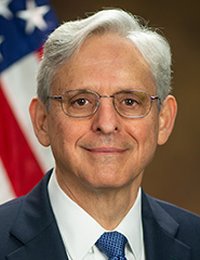
Merrick Garland is the 86th Attorney General of the United States. Immediately preceding his confirmation as Attorney General, he was a judge of the U.S. Court of Appeals for the District of Columbia Circuit.
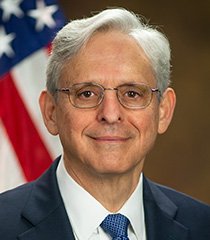
Attorney General Merrick B. Garland was sworn in as the 86th Attorney General of the United States on March 11, 2021. As the nation’s chief law enforcement officer, Attorney General Garland leads the Justice Department’s 115,000 employees, who work across the United States and in more than 50 countries worldwide. Under his leadership, the Department of Justice is dedicated to upholding the rule of law, keeping our country safe, and protecting the civil rights of all Americans.
Immediately preceding his confirmation as Attorney General, Attorney General Garland was a judge of the United States Court of Appeals for the District of Columbia Circuit. He was appointed to that position in 1997, served as Chief Judge of the Circuit from 2013-20, and served as Chair of the Executive Committee of the Judicial Conference of the United States from 2017-20. In 2016, President Obama nominated him for the position of Associate Justice of the United States Supreme Court.
Before becoming a federal judge, Attorney General Garland spent a substantial part of his professional life at the Department of Justice. He served in both career and non-career positions under five Attorneys General, including as Special Assistant to the Attorney General, Assistant United States Attorney, Deputy Assistant Attorney General in the Criminal Division, and Principal Associate Deputy Attorney General. In those roles, his responsibilities spanned the work of the Department, including criminal, civil, and national security matters. They also included direct supervision of investigations and prosecutions of national importance, including the Oklahoma City bombing, Unabomber, and Montana Freemen cases.
Earlier in his career, Attorney General Garland was a partner in the law firm of Arnold & Porter, where his practice involved civil and criminal litigation, antitrust, and administrative law. He also taught antitrust at Harvard Law School and published law review articles on both antitrust and administrative law.
Attorney General Garland graduated summa cum laude from Harvard College and magna cum laude from Harvard Law School. Following law school, he clerked for Judge Henry J. Friendly of the United States Court of Appeals for the Second Circuit, and for Justice William J. Brennan, Jr., of the United States Supreme Court.
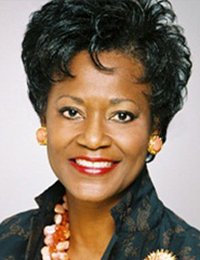
Kim Askew is a partner at DLA Piper, where she represents clients in complex commercial and employment litigation. She has successfully tried cases to jury and non-jury verdicts in state and federal courts across the US and has handled appeals before federal and Texas appellate courts.
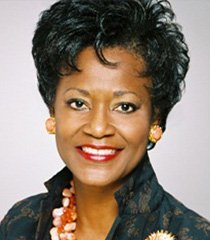
Kim Askew is a partner at DLA Piper, where she represents clients in complex commercial and employment litigation. She was elected to the ALI in May 1997 and was elected to the Council in May 2007.
Askew has extensive experience in representing clients in complex commercial litigation in a variety of industries. She also represents clients in significant employment matters involving claims of race, disability, gender and age discrimination, sexual harassment and in litigation involving trade secrets, non-compete, and non-solicitation and employment agreements. She has successfully tried cases to non-jury and jury verdicts in state and federal courts around the country, and handled appeals before the Texas Courts of Appeals and the Fourth, Fifth and Eighth Circuit Courts of Appeals.
Askew is a member of the ALI 's Development Committee and served on the Members Consultative Group for the Restatement of the Law, Employment Law. She has chaired ALI committees, including the Outreach Committee and the ABA Section Chairs & Chairs Elect Committee. She is a longtime leader in the American Bar Association, State Bar of Texas, and Dallas Bar Association and is a member of the ABA House of Delegates and Past Chair of the Section of Litigation of the American Bar Association. She has also previously served on the Board of Directors of ALI-ABA.
Askew chaired the State Bar of Texas Board of Directors in 2003-04 after prior service as Chair of the Section of Litigation and the Continuing Legal Education Committee.
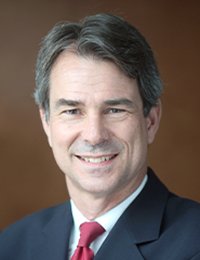
John Bellinger served as The Legal Adviser for the Department of State from 2005-2009 under Secretary of State Condoleezza Rice and previously as Senior Associate Counsel to President George W. Bush and Legal Adviser to the National Security Council from 2001-2005.
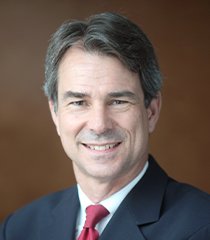
John Bellinger heads Arnold & Porter's Global Law and Public Policy practice. He joined the firm in 2009, after holding several senior Presidential appointments in the US government, including as the Senate-confirmed Legal Adviser to the Department of State and Senior Associate Counsel to the President and Legal Adviser to the National Security Council (NSC) at the White House in the George W. Bush Administration.
Mr. Bellinger represents individuals, corporations, and sovereign governments in litigation in US courts and before international institutions. He has extensive experience in US foreign relations litigation involving the Alien Tort Statute, the Foreign Sovereign Immunities Act, the Anti-Terrorism Act, and the diplomatic and official immunities of foreign governments and government officials. He advises clients on other public international law matters, including treaties and international agreements as well as international humanitarian law and human rights law. He also counsels US and foreign clients on national security legal and policy issues, including US and multilateral financial sanctions and asset controls, the extraterritorial application of US criminal and civil laws, and transactions reviewed by the Committee on Foreign Investment in the United States (CFIUS).
Chambers Global ranks Mr. Bellinger among the best international lawyers in the world, reporting that he has "second-to-none experience in public international law, international litigation and foreign sovereign immunity" and that his "experience at the highest levels of the Executive branch...gives him a distinct and important vantage point on legal issues." Chambers adds: "For any cross border work he's just extraordinary, he knows the area inside-out."
Mr. Bellinger was the State Department Legal Adviser–the most senior international lawyer in the US Government–from 2005 to 2009, serving under Secretary of State Condoleezza Rice. He directed more than 170 lawyers on domestic and international law matters affecting US foreign relations. Before joining the State Department, Mr. Bellinger managed Secretary Rice's Senate confirmation process and co-directed her State Department transition team. In 2009, Mr. Bellinger received the Secretary of State's Distinguished Service Award.
Mr. Bellinger has argued cases before the International Court of Justice (Mexico v. United States–(Medellin)) and the Iran-United States Claims Tribunal in The Hague. He has appeared on numerous briefs in US federal courts, including the Supreme Court, in litigation involving international law issues.
As Legal Adviser to the NSC from 2001 to 2005, Mr. Bellinger advised President Bush, Cabinet officials, National Security Advisor Rice, and NSC staff on a wide range of national security and international law issues, including counterterrorism issues after the 9-11 attacks. He was one of the principal drafters of the legislation that created the Director of National Intelligence.
Prior to his service in the Bush Administration, Mr. Bellinger served as Counsel for National Security Matters in the Criminal Division at the US Department of Justice (1997-2001); Of Counsel to the Senate Select Committee on Intelligence (1996); General Counsel of the Commission on the Roles and Capabilities of the US Intelligence Community (1995-1996); and Special Assistant to Director of Central Intelligence William Webster (1988-1991). Mr. Bellinger is an Adjunct Senior Fellow in International and National Security Law at the Council on Foreign Relations. He has testified before Congress on numerous occasions, is quoted regularly in the media on international and national security law matters, and has lectured at numerous US and foreign universities and law schools. He is the author of many law review articles and op-eds on international law, including op-eds in The Washington Post, The New York Times, and The Wall Street Journal. Mr. Bellinger is a senior contributor to the Lawfare blog.
Mr. Bellinger is a member of the Secretary of State's Advisory Committee on International Law. He served from 2005-2019 as one of four US Members of the Permanent Court of Arbitration in The Hague and a member of the US "National Group", which nominates judges to the International Court of Justice. He is also a member of the Council on Foreign Relations and the American Society of International Law. He is a member of the Council of The American Law Institute; the boards of directors of the American Ditchley Foundation, the Salzburg Global Seminar, and the Stimson Center; and the advisory committee of Foreign Affairs magazine.
Mr. Bellinger is a graduate of Princeton University's Woodrow Wilson School of Public and International Affairs, and he holds an MA in Foreign Affairs from the University of Virginia and a JD from Harvard Law School, where he was an editor of the Harvard International Law Journal.
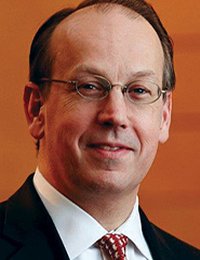
Paul Clement is a partner in the Washington, D.C., office of Kirkland & Ellis LLP. He served as the 43rd Solicitor General of the United States. Clement’s practice focuses on appellate matters, constitutional litigation and strategic counseling.
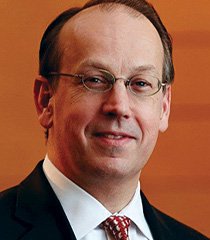
Paul Clement is a partner in the Washington, D.C., office of Kirkland & Ellis LLP. He served as the 43rd Solicitor General of the United States from June 2005 until June 2008. Before his confirmation as Solicitor General, he served as Acting Solicitor General for nearly a year and as Principal Deputy Solicitor General for over three years.
He has argued over 100 cases before the United States Supreme Court, including McConnell v. FEC, Tennessee v. Lane, United States v. Booker, MGM v. Grokster, Hobby Lobby v. Burwell, Epic Systems Corp. v. Lewis, Rucho v. Common Cause, Facebook v. Duguid, and TransUnion v. Ramirez. Clement has argued more Supreme Court cases since 2000 than any lawyer in or out of government. He has also argued many important cases in the lower courts, including Walker v. Cheney, United States v. Moussaoui and NFL v. Brady.
Clement’s practice focuses on appellate matters, constitutional litigation and strategic counseling. He represents a broad array of clients in the Supreme Court and in federal and state appellate courts. Last year, for example, he successfully argued Supreme Court cases involving significant issues of energy regulation, statutory interpretation, state sovereign immunity and Article III standing, and successfully argued a trademark appeal in the Fourth Circuit, and a constitutional appeal before the en banc Eleventh Circuit.
He focuses on high-stakes appeals. In recent years, he successfully defended a $1.2 billion jury verdict for clients in a Tenth Circuit case, while securing the reversal of an over $2 billion jury verdict for another client in the Seventh Circuit and the approval of a nearly billion dollar class action settlement in the Third Circuit. He has initiated major administrative law challenges and constitutional litigation against the federal government, such as the successful challenge to the HHS drug-pricing rule and threatened challenges that led to the withdrawal of the Treasury Department’s proposed cryptocurrency regulations. He also counsels clients on a variety of strategic legal questions, whether arising from pending legislation, government inquiries or ongoing litigation.
Clement has undertaken substantial pro bono engagements in the Supreme Court, such as twice successfully representing the defendant in Bond v. United States and successfully representing the Omaha Tribe in Nebraska v. Parker, the guardian ad litem in Adoptive Couple v. Baby Girl, the defendant in Sekhar v. United States, and the Little Sisters of the Poor. Clement’s pro bono representation also precipitated the federal government’s confession of error in United States v. Rojas.
Following law school, Clement clerked for Judge Laurence H. Silberman of the U.S. Court of Appeals for the D.C. Circuit and for Associate Justice Antonin Scalia of the U.S. Supreme Court. After his clerkships, he went on to serve as Chief Counsel of the U.S. Senate Subcommittee on the Constitution, Federalism and Property Rights.
Clement is a Distinguished Lecturer in Law at the Georgetown University Law Center, where he has taught in various capacities since 1998. He also serves as a Senior Fellow of the Law Center’s Supreme Court Institute.
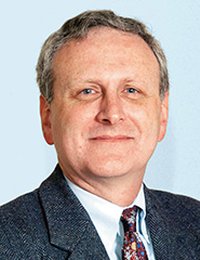
Neil Cohen, the Jeffrey D. Forchelli Professor of Law at Brooklyn Law School, teaches courses in domestic and international commercial law, contracts, and conflict of laws.
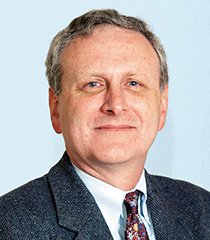
Neil B. Cohen, the Jeffrey D. Forchelli Professor of Law at Brooklyn Law School, teaches courses in domestic and international commercial law, contracts, and conflict of laws. For over two decades, Cohen has been a key participant in major domestic and international law reform projects with respect to commercial transactions. In recognition of his accomplishments, in 2014 Cohen received both The American Law Institute’s John Minor Wisdom Award and the Homer Kripke Lifetime Achievement Award of the American College of Commercial Finance Lawyers. He was the Reporter for Revised Article 1 of the Uniform Commercial Code and for The American Law Institute's Restatement of the Law of Suretyship and Guaranty; in honor of his accomplishments as Reporter for the Restatement, he was named as the Institute’s R. Ammi Cutter Reporter. Cohen currently serves as the Director of Research of the Permanent Editorial Board for the Uniform Commercial Code. In addition, he has been a member of several drafting committees for revising various articles of the Uniform Commercial Code, including the two most recent revisions of Article 9 (Secured Transactions), and has served as an Adviser for several projects of The American Law Institute, including Principles of Software Contracts and the Restatement of the Law Third, Conflict of Laws.
Cohen has been active since 1995 in the modernization, harmonization, and internationalization of international commercial law. He has served as a member of United States delegation to the United Nations Commission on International Trade Law for its work on harmonizing and modernizing the law of secured credit, as a member of the Working Group at the Hague Conference on Private International Law that prepared the Hague Principles on Choice of Law in International Commercial Contracts, and as an observer and working group member for the work of the International Institute for the Unification of Private Law (Unidroit) in its development of principles for international contracts. Since 2009, he has been a member of the United States Department of State’s Advisory Committee on Private International Law.
Cohen is a co-author of Farnsworth, Sanger, Cohen, Brooks and Garvin, Contracts: Cases and Materials as well as dozens of other books and articles concerning domestic and international commercial law. In addition to his expertise in contract and commercial law, Cohen has written numerous law review articles in areas as diverse as bankruptcy, medical malpractice, probability and statistics, and baseball and the law.
Cohen received an S.B. from the Massachusetts Institute of Technology and a J.D. from New York University School of Law, where he was a Root-Tilden Scholar.
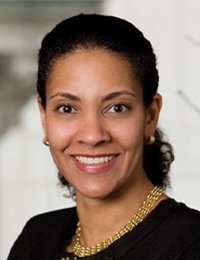
Sarah Dodds-Brown serves as Executive Vice President & Managing Counsel at American Express. She leads the Global Enterprise Services & U.S. Market. She focuses on ways to enhance the management of legal risk and the operation of the legal department and serves as a member of the company's enterprise risk management committee.
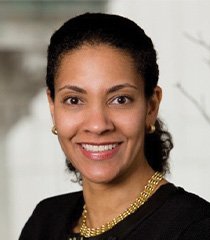
Sarah Dodds-Brown serves as Executive Vice President & Managing Counsel at American Express. She leads the Global Enterprise Services & U.S. Market. She focuses on ways to enhance the management of legal risk and the operation of the legal department and serves as a member of the company's enterprise risk management committee.
Over the course of her 16-year career with American Express, Dodds-Brown has been recognized as a strategic business partner who effectively challenges the status quo and creates momentum for change and evolution, and she has been instrumental in redefining the culture and expanding the engagement of the legal function at American Express.
For several years, Dodds-Brown also led the enterprise-wide legal Privacy & Data Governance function. In this capacity, she revolutionized the approach to privacy and data governance across the Company. She set the agenda for the broader privacy organization during an extended transition period between Chief Privacy Officers and privacy counsel, leading the development of a principle and risk-based approach to how the Company partners with third parties, the design and implementation of the governance strategy for the Company’s “Big Data” capabilities and the development of the global online privacy statement strategy. During the time of her tenure leading the privacy legal function, the Company was recognized six years in a row as ‘The Most Trusted Company for Privacy’ in a survey conducted by the Ponemon Institute. She served as an Adviser on two American Law Institute projects focused on developing principles of law for data privacy and principles for a data economy.
Since the beginning of her career, Dodds-Brown has been active with educational and civic organizations. She was elected and served as a “Young Trustee” on the Duke University Board of Trustees following her undergraduate studies and went on to subsequently serve two terms on the board of advisors for Duke’s Trinity College of Arts & Sciences. In 2006, Dodds-Brown was asked by the University president to serve on a specially created Presidential Council to scrutinize Duke's response to allegations made against several members of its men’s lacrosse team. During a time of acute crisis for the University and incredible reputational vulnerability, she and the other members of the Council advised the president on whether Duke's responses were appropriate and effective. Dodds-Brown also served as an inaugural member of the Duke Women’s Impact Network Leadership Council, which is focused on strengthening the pipeline of women qualified for service on Duke’s volunteer leadership boards and broadening Duke’s understanding of women’s philanthropic motivations to better cultivate and engage women donors.
In 2011, Dodds-Brown was asked by the Mayor of the City of New Rochelle to participate on a joint City/College planning committee undertaken between Iona College and the City following the withdrawal by Iona College of a controversial and contested off-campus dormitory proposal. Following her successful and influential role on the planning committee, she was appointed by the Mayor to the City’s Planning Board on which she is currently serving as Chair. Dodds-Brown is a member of the DirectWomen Advisory Board and serves as the Chair of the Legal, Policy & Risk Committee on the Board of Trustees of Rye Country Day School in Rye, NY. She is a member of the Executive Leadership Council and a member of the Board of Trustees for the WNET Group.
Dodds-Brown began her career in private practice as an M&A and private equity lawyer at Paul, Weiss, Rifkind, Wharton & Garrison LLP in New York. She received her J.D. from Columbia University School of Law and her A.B. degree from Duke University. She currently resides in New Rochelle, NY with her husband and three children.
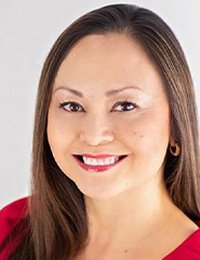
Sarah Hammer is Managing Director of the Stevens Center for Innovation in Finance and Senior Director of the Harris Alternative Investments Program at the Wharton School of the University of Pennsylvania. She is also an Adjunct Professor of Law at the University of Pennsylvania Law School.
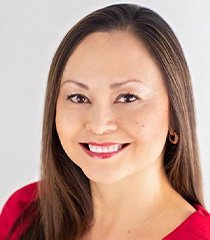
Sarah Hammer is Managing Director of the Stevens Center for Innovation in Finance and Senior Director of the Harris Alternative Investments Program at the Wharton School of the University of Pennsylvania. In these roles, she focuses her efforts on private capital investments and financial technology. Hammer is also an Adjunct Professor of Law at the University of Pennsylvania Law School, teaching an upper level juris doctor course on financial regulation.
Previously, Hammer was Acting Deputy Assistant Secretary for Financial Institutions and Director of the Office of Financial Institutions Policy at the United States Department of the Treasury. In this role, she led and directed the Department’s policy responsibilities involving financial institutions, as well as oversaw the Federal Insurance Office and the Office of Critical Infrastructure Protection and Compliance Policy (cybersecurity).
Hammer also served on the board of the Securities Investor Protection Corporation (SIPC) and assisted the U.S. Treasury Secretary in fulfilling responsibilities on the board of the Pension Benefit Guaranty Corporation (PBGC). Hammer also served as cross functional team lead for a full review and report by the U.S. Treasury on the U.S. financial regulatory framework.
Hammer has held various leadership positions throughout financial services in general management, portfolio management, trading, marketing, research, and analytics at the Vanguard Group, PIMCO, JP Morgan Chase, BlackRock, and Tudor Investments.
Hammer is also a board member of the Independent Management Advisory Committee of the International Telecommunications Union at the United Nations (ITU). The ITU is the UN specialized agency responsible for all matters related to information and communication technology, including broadband internet, wireless technology, satellite, and television.
Hammer earned a J.D. from the University of Pennsylvania Law School, an M.B.A. from the Wharton School of the University of Pennsylvania, and a Master of Studies from Oxford University. She is a Harry S. Truman Scholar.
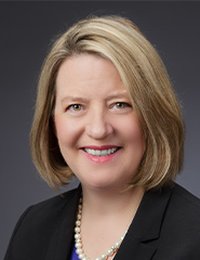
Teresa Wilton Harmon is the managing partner of Sidley’s Chicago office and a partner in the firm’s Global Finance practice area, focusing on financial transactions and commercial law.
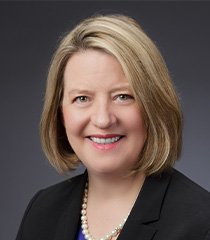
Teresa Wilton Harmon is the managing partner of Sidley’s Chicago office and a partner in the firm’s Global Finance practice area, focusing on financial transactions and commercial law. Her financial transactions experience includes secured and unsecured loans, workouts and restructurings, structured finance and securitization. For several years, her practice has placed particular emphasis on financial transactions involving regulated and emerging industries, including derivatives, clearing organizations, exchanges, financial market utilities, student loan companies, electric utilities and fintech companies. Her experience and knowledge allow her to bridge the gap between complex legal regimes and sound financial principles. She takes an active role in counseling regulated industry clients and financial market participants on liquidity solutions, collateral and risk management methods, default scenarios, counterparty risk, netting and adapting to new legal regimes.
Harmon’s commercial law practice includes all articles of the Uniform Commercial Code, with a special emphasis on Article 9 secured transactions. Her commercial law experience includes using the tools of commercial law to help clients build and navigate blockchain, distributed ledger technology, virtual currency, digital currency and tokenized security platforms. She has honed her UCC knowledge as an active participant in UCC drafting committees, as a member of the Permanent Editorial Board for the UCC and as an adjunct professor teaching Secured Transactions at The University of Illinois College of Law. She is a nationally recognized speaker on UCC and other commercial law issues and is a co-author of a widely distributed annual Commercial Law Developments update.
In 2020, Chicago Daily Law Bulletin and Chicago Lawyer jointly honored Harmon at the inaugural “50 Women in Law Awards.” She has been named to Crain’s Chicago Business’ 2019 “Notable Gen X Leaders in Law” list and 2020 “Notable Women Executives Over 50” list. She has also recently been named a “Trailblazer in Finance and Banking” by The National Law Journal (2019).
She currently serves as Second Vice President of The American Law Institute and Chair of the Membership Committee. She received her J.D. from The University of Chicago Law School and her M.B.A degree from The Culverhouse College of Business at The University of Alabama.
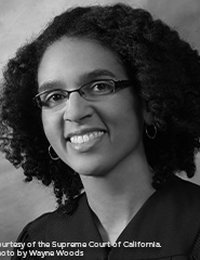
Leondra R. Kruger is an associate justice of the Supreme Court of California. Immediately before joining the court, Kruger served in the United States Department of Justice as a Deputy Assistant Attorney General for the Office of Legal Counsel.
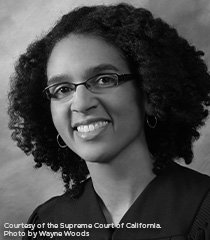
Leondra R. Kruger is an associate justice of the Supreme Court of California. Immediately before joining the court, Kruger served in the United States Department of Justice as a Deputy Assistant Attorney General for the Office of Legal Counsel. From 2007 to 2013, she served in the Department as an Assistant to the Solicitor General and as Acting Deputy Solicitor General. During her tenure in the Office of the Solicitor General, she argued 12 cases in the United States Supreme Court on behalf of the federal government. In 2013 and in 2014, she received the Attorney General’s Award for Exceptional Service, the Department’s highest award for employee performance.
Kruger had previously been in private practice, where she specialized in appellate and Supreme Court litigation, and taught as a visiting assistant professor at the University of Chicago Law School.
A native of the Los Angeles area, Kruger attended high school in Pasadena. She received her bachelor’s degree with high honors from Harvard College, where she was elected to Phi Beta Kappa. She received her J.D. from Yale Law School, where she served as Editor-in-Chief of the Yale Law Journal. Following graduation, she served as a law clerk to Judge David S. Tatel of the United States Court of Appeals for the D.C. Circuit, and to Justice John Paul Stevens of the United States Supreme Court.
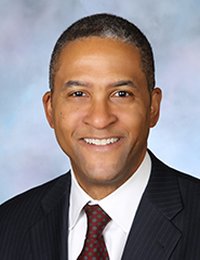
Raymond Lohier is a judge on the United States Court of Appeals for the Second Circuit. He was nominated by President Barack Obama in March 2010 and unanimously confirmed by the United States Senate in December 2010.
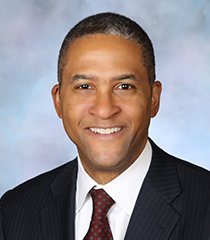
Raymond Lohier is a judge on the United States Court of Appeals for the Second Circuit. He was nominated by President Barack Obama in March 2010 and unanimously confirmed by the United States Senate in December 2010.
For the decade prior to his appointment, Lohier was an Assistant United States Attorney in the Southern District of New York, where he served as Senior Counsel to the United States Attorney, Deputy Chief and Chief of the Securities and Commodities Fraud Task Force, and Deputy Chief and Chief of the Narcotics Unit. As the Deputy Chief and Chief of the Securities and Commodities Fraud Task Force, Lohier was responsible for overseeing the Bernard Madoff prosecutions, the investigation and prosecution of Marc Dreier, the Galleon and other hedge fund-related insider trading cases, as well as several other high-profile fraud cases. Prior to his service as an Assistant United States Attorney, from 1997 to 2000, Lohier served as a Senior Trial Attorney with the Civil Rights Division of the United States Department of Justice, where he spearheaded employment discrimination-related litigation and worked on other civil rights matters of importance to the federal government.
Lohier has been a member of ALI since 2013, serving on the Council since 2014. He was an Adviser for Restatement of the Law, Employment Law, and serves as an Adviser for Principles of the Law, Compliance, Risk Management, and Enforcement and as chairperson of the ALI’s Awards committee.
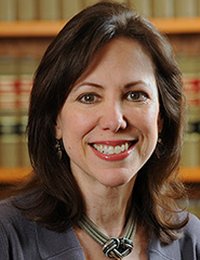
Diane Orentlicher has been described as “one of the world’s leading authorities on human rights law and war crimes tribunals.” She has lectured and published widely on issues of transitional justice, international criminal law and other areas of public international law, and has testified on a range of issues relating to both domestic human rights laws and U.S. foreign policy.
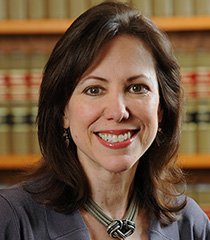
Diane Orentlicher, Professor of International Law at American University, has been described by the Washington Diplomat as “one of the world’s leading authorities on human rights law and war crimes tribunals.” She has lectured and published widely on issues of transitional justice, international criminal law and other areas of public international law, and has testified before the United States Senate and House on a range of issues relating to both domestic human rights laws and U.S. foreign policy. Professor Orentlicher has served in various public positions, including as the Deputy for War Crimes Issues in the U.S. Department of State (2009-2011); United Nations Independent Expert on Combating Impunity (on appointment by the UN Secretary-General) and Special Advisor to the High Commissioner on National Minorities of the Organization for Security and Co-operation in Europe (on secondment from the U.S. Department of State).
Professor Orentlicher’s book Some Kind of Justice: The ICTY's Impact in Bosnia and Serbia (Oxford University Press 2018, 2nd ed. 2019) has been described as “the definitive account” of the International Criminal Tribunal for the Former Yugoslavia. Recipient of the Pauline Ruyle Moore scholarship award, Some Kind of Justice offers a groundbreaking account of how an international criminal tribunal affects local communities and the factors that account for its changing impact over time.
Professor Orentlicher’s recent scholarship has explored the social and legal impact of other war crimes tribunals, such as the postwar International Military Tribunal for the Far East and the Extraordinary Chambers in the Courts of Cambodia.
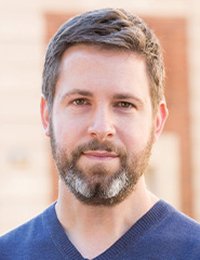
David Pozen is the Vice Dean for Intellectual Life and Charles Keller Beekman Professor of Law at Columbia Law School. He teaches and writes about constitutional law, information law, and nonprofit law, among other topics.
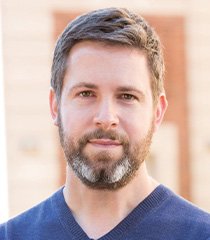
David Pozen is the Vice Dean for Intellectual Life and Charles Keller Beekman Professor of Law at Columbia Law School. He teaches and writes about constitutional law, information law, and nonprofit law, among other topics.
In 2019, The American Law Institute named Pozen the recipient of its Early Career Scholars Medal, which is awarded every other year to “one or two outstanding early-career law professors whose work is relevant to public policy and has the potential to influence improvements in the law.” Justice Mariano-Florentino Cuéllar of the California Supreme Court, the selection committee chair, described Pozen’s writings on government secrecy and constitutional theory as “remarkable” and “widely influential,” “as timely as they are learned and as creative and thought-provoking as they are nuanced and precise.”
Pozen’s body of work includes dozens of articles, essays, and book chapters. He has also edited two volumes for Columbia University Press, on transparency (2018) and free speech (2020), and been a semi-regular contributor to the Balkinization and Lawfare blogs. He has been the keynote speaker at numerous academic conferences, in the United States and abroad, and his scholarship has been discussed in outlets including The New York Times, The New Yorker, The Washington Post, Harper's, Politico, American Scholar, and NPR.
In 2017, Pozen became the inaugural visiting scholar at the Knight First Amendment Institute at Columbia University. In 2013, the student-run Columbia Society of International Law recognized Pozen with its Faculty Honors Award.
From 2010 to 2012, Pozen served as special adviser to Harold Hongju Koh, legal adviser at the U.S. Department of State. Previously, Pozen was a law clerk for Justice John Paul Stevens on the U.S. Supreme Court and for Judge Merrick B. Garland on the U.S. Court of Appeals for the District of Columbia Circuit, and a special assistant to Senator Edward M. Kennedy on the Senate Judiciary Committee.
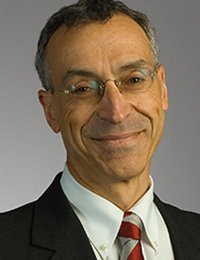
Seth Waxman is a partner at WilmerHale, serving as chair of the firm’s appellate and Supreme Court litigation practice. He served as the 41st Solicitor General of the United States.
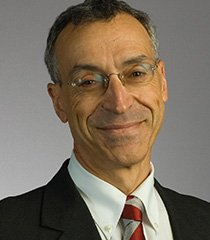
Seth Waxman is a partner at WilmerHale, serving as chair of the firm’s appellate and Supreme Court litigation practice. Universally considered to be among the country’s premier Supreme Court and appellate advocates, Waxman served as Solicitor General of the United States from 1997 through January 2001. In addition to leading the firm’s appellate practice, Waxman engages in a broad litigation and counseling practice, with particular emphasis on complex challenges involving governments or public policy, intellectual property, regulatory, criminal and commercial issues.
A Fellow of the American College of Trial Lawyers, Waxman also is a widely respected trial litigator. In a December 2020 article, The Hill stated, “[T]here is no more respected lawyer in Washington.” The American Lawyer named him Litigation - First Amendment “Lawyer of the Year” for 2020, Appellate/Litigation “Lawyer of the Year” for 2018, and “Litigator of the Year” and Litigation - Intellectual Property “Lawyer of the Year” for 2016. Waxman was also named Litigation - First Amendment Law and Regulatory Enforcement Law “Lawyer of the Year” for 2015 by Best Lawyers in America, and, in 2014, Super Lawyers deemed him the “number one” lawyer in Washington DC. Waxman has been accorded both “star” rating by Chambers USA and “leading lawyer” ranking in PLC’s Global Counsel Handbook.
Waxman’s practice spans both federal and state trial and appellate courts. He has delivered over 80 oral arguments in the United States Supreme Court and many more in the lower federal and state courts. Waxman’s clients range from financial institutions to technology, consumer, industrial and media companies, universities and Indian tribes, and he leads the firm’s efforts to counsel tribal governments. He also represents a number of local, state and national governments and prominent business and government executives and professionals. The recipient of numerous professional awards and honors, Waxman is among a small handful of practicing attorneys elected to the American Academy of Arts and Sciences. He holds several honorary degrees, as well as the Jefferson Medal in Law, an honor awarded once a year and only rarely to an attorney in private practice. In recognition of exceptional service to law enforcement, Waxman holds the extraordinary status of permanent honorary Special Agent of the Federal Bureau of Investigation.
Waxman served as president of Harvard’s Board of Overseers from 2010-2011. He was elected to the board in 2005, and has served on its executive committee since 2008. Waxman also serves on the faculty of the Georgetown University Law Center. He is a director and fellow of several professional, educational and cultural institutions, including the American College of Trial Lawyers, the American Academy of Appellate Lawyers, the American Bar Foundation, The American Law Institute, the Supreme Court Institute and the Supreme Court Historical Society. He lectures and writes frequently on topics related to litigation, constitutional history and doctrine, the First Amendment, intellectual property and the Supreme Court.
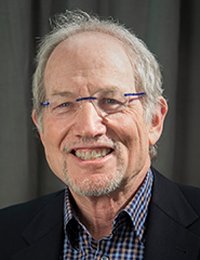
Steve Weise is a partner in Proskauer's Corporate Department, where he practices in all areas of commercial law. His experience in financing is extensive, especially in those secured by personal property, including structured financing.
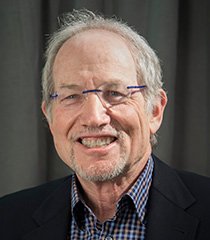
Steven O. Weise is a partner in Proskauer’s Corporate Department, where he practices in all areas of commercial law.
His experience in financing is extensive, especially in those secured by personal property, including structured financing. He also handles matters involving California real property anti-deficiency laws, workouts, guarantees, sales of goods, equipment leasing, commercial paper and checks, letters of credit, and investment securities. Weise’s experience covers e-commerce, contract law (including “plain English” drafting), legal opinions, and consumer credit law compliance matters.
Weise was elected to ALI in 1992 and to the Council in 2012. He served as co-chair for Principles for a Data Economy (completed 2021). He is an Adviser on the Restatement of the Law, Consumer Contracts and Restatement of the Law Fourth, Property projects and serves on several the Members Consultative Groups.
Weise lectures widely on commercial law topics and legal opinion letters and is the author of over 100 articles on these topics. He has a wide range of UCC expertise and has served as an ALI designee on the Permanent Editorial Board for the Uniform Commercial Code since the mid-1990s.
